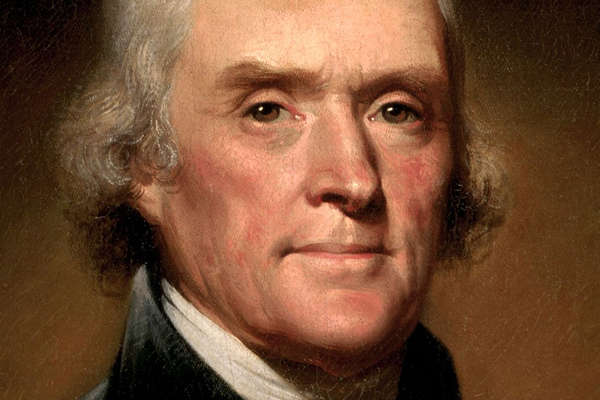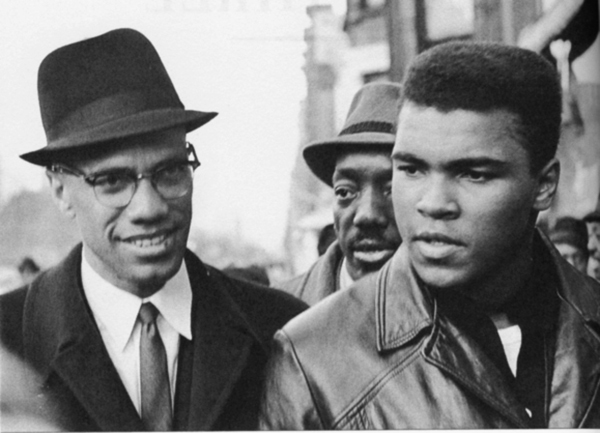Sustainability: Too many Thomas Jeffersons and not enough Muhammad Alis
Thomas Jefferson was one of history’s great advocates for freedom, with great accomplishments. He led writing the Declaration of Independence. His writings on freedom of speech, religion, and thought helped prompt the Revolutionary War that created this democratic nation.

Yet he was a racist and owned slaves. He suggested orangutans mated with Africans (he spelled oranootan in his 1784 Notes on the State of Virginia), for which he can not have had evidence. Did he make it up? Since he would never choose to be a slave, how can anyone excuse enslaving others? He could have freed them but didn’t. He had children with a woman he enslaved. I can’t see how she could consent in such a relationship.
His racism and anti-freedom behavior at home undermined his work for freedom. As a President from Virginia, imagine if he had lived consistently with his values. We can only speculate, but had he freed his slaves and worked as hard on universal freedom as for people like him, might we have avoided a Civil War? If not fully avoided, reduced its scale?
I’ll come to Muhammad Ali by way of another great proponent of freedom, Martin Luther King. Many know him best from his I Have a Dream speech, but he considered Beyond Vietnam his most important. He gave it in April 1967. He had opposed the war in Vietnam for years by then, but held back from prominently speaking against it to protect his relationship with Lyndon Johnson after their collaboration on the recent civil rights acts. Many colleagues also advised him against potentially diluting his focus overseas.
Why did Dr. King speak against Vietnam then? Because Muhammad Ali led the way. Ali became the first public figure of his renown to speak against the war. I contend that if you lead Martin Luther King, you qualify as a great leader.

Ali didn’t just speak against the war. He refused to accept being drafted. As a celebrity, he faced no personal risk in accepting being drafted. Like athletes before him, he would at most go on tour to support troops and help sell war bonds. Even Jackie Robinson advised him to accept being drafted. The nation had no Vietnam War in its past; it was the army that beat Hitler and protect Korea from the Communists in China.
Government authorities told him and his lawyers his legal risks in not accepting being drafted. He was convicted, sentenced to five years in jail, and fined, his passport revoked. States revoked his boxing licenses, depriving him of making a living in his profession at the physical prime of his career. Many celebrated his actions, but people threatened his life.
From one perspective, accepting being drafted would have been his easiest choice. It would mean following the law, raising his stature among mainstream America, and making money.
But from his perspective, following his conscience was his only choice and therefore simpler. All he had to do was not cross the line when the draft board called his name. However difficult the challenges that followed, he was simply following through on what he considered right. He had confidence in himself that he could survive what came. It’s tempting to look back and say it was easy for him, having been heavyweight champion of the world, but people had threatened to kill him and there was then no path to making a living as a former boxer, especially not one convicted.
Ali was a great boxer and poet. I believe refusing to accept being drafted catapulted him to being one of the twentieth century’s great humans, potentially one of history’s greats. All athletes who take stands and speak freely since him follow him—Kareem Abdul-Jabbar, Colin Kaepernick, Billie Jean King, Martina Navratilova, Charles Barkley.
Many environmentalists today speak as eloquently on sustainability as Jefferson did on freedom. Like Jefferson, nearly every environmentalist I know of acts against the values and principles they support. Like Jefferson, they undermine their work. They invite opponents to suggest that they don’t believe what they say. They give their opponents ammunition.
Most importantly, they don’t learn that living sustainably is a joy. Without experience transitioning themselves, they don’t know what they’re talking about. They present living sustainability as a sacrifice holding them back from a better, more productive life. They lead everyone else to do what they do: tell others to pollute and deplete less while not doing it themselves. We have a world full of people pointing fingers not acting, not learning that they’ll prefer living sustainably once they experience it. Then they’ll wish they had changed earlier. They talk about not creating purity tests, but the issue is practical effectiveness, not sanctimony. Do they realize future generations will take down their statues?
Sustainability has too many Thomas Jeffersons and not enough Muhammad Alis.
Four years after his conviction, the Supreme Court overturned it in an 8-0 (one abstention) ruling. He defeated the Federal Branch of the United States government.
Imagine if all environmentalists lived so consistently with their values.
Read my weekly newsletter

On initiative, leadership, the environment, and burpees